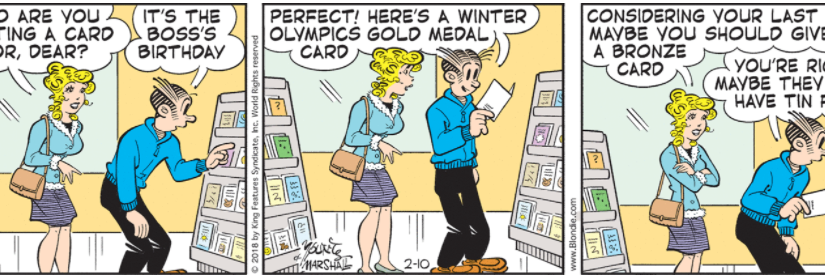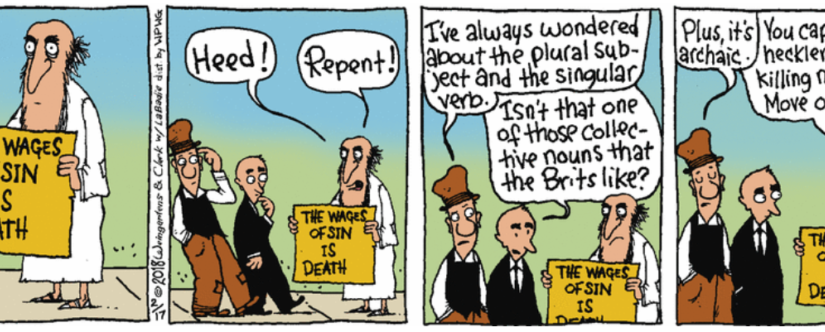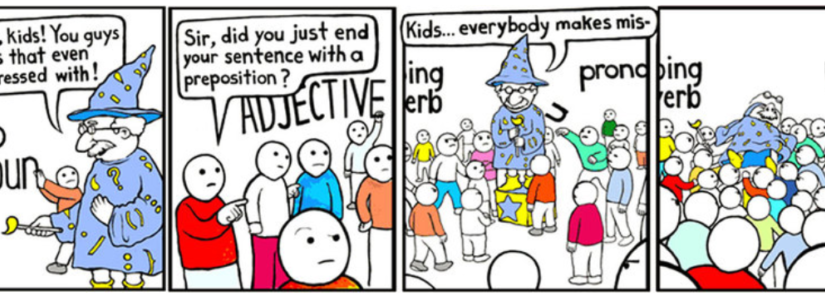Lots of Indo-European languages use inflectional endings on words to indicate how the words are used in the sentence. About all we have left of inflected nouns in English is the possessive case.
Now, when we have a direct object and an indirect object, you can usually tell which is which without an inflectional ending. So If I say,
Give the woman the ball.
We rely on word order to know that woman (indirect object, dative) is getting the ball (direct object, accusative). That’s easy when you have nice short sentences. Suppose the ball isn’t in the sentence:
Give the woman.
Sounds like something from a wedding ceremony. Now let’s add a man into the picture:
Give the woman the man.
A little harder. Who’s getting whom? Put a “to” in there:
Give the woman to the man—or—give to the woman the man.
We use a “to” to indicate the indirect object. An inflection would be something like -em for dative (indirect object) and -en for accusative (direct object). Then we could put the words in either order and our meaning would still be clear.
Give the womanen the manem.
Now we can see that he’s getting her! No need for “to.”
All this is a bit trivial with these nice short sentences. But what about a long sentence? Here’s one, from the book Listening In by Susan Landau, page 107:
When a user instructs her iPhone to update, the iPhone sends an Apple authorization server—directly or via iTunes—the device’s unique ID, hashes of the software the phone is requesting, and a random number.
Where did the iPhone get the server to be able to send it? Oh wait—the server is the indirect object; the ID and so on are being sent to the server. Not obvious until you wade through the sentence.
A dative inflectional ending on “server” would have been handy.



 Okay, here’s what I found out: In Greek and many other languages, it’s okay to leave out the verb “to be” in any of its many forms, and that’s what Paul of Tarsus did here. Basically, he wrote, “The wages of sin—death!” I’d be curious to know what he would have written if he had included the verb, but since it’s perfectly idiomatic to leave “is” and “are” out, I’ll bet he didn’t even consider including it. I’ll add, since we’re talking about Greek grammar, “sin” is singular, and there’s a rule in Greek and Latin called attraction, where a word picks up a form from the word that precedes it, regardless of the precise grammar. So maybe that’s why the translators felt comfortable using the singular verb in English, to go with the singular “sin.” And, as the comic suggests, “wages” is a collective noun, so you can treat it as a singular.
Okay, here’s what I found out: In Greek and many other languages, it’s okay to leave out the verb “to be” in any of its many forms, and that’s what Paul of Tarsus did here. Basically, he wrote, “The wages of sin—death!” I’d be curious to know what he would have written if he had included the verb, but since it’s perfectly idiomatic to leave “is” and “are” out, I’ll bet he didn’t even consider including it. I’ll add, since we’re talking about Greek grammar, “sin” is singular, and there’s a rule in Greek and Latin called attraction, where a word picks up a form from the word that precedes it, regardless of the precise grammar. So maybe that’s why the translators felt comfortable using the singular verb in English, to go with the singular “sin.” And, as the comic suggests, “wages” is a collective noun, so you can treat it as a singular.
 The error is made by both the students and the, um, professor, and the error is promulgated by lots of stuffy English teachers, so it’s fairly common.
The error is made by both the students and the, um, professor, and the error is promulgated by lots of stuffy English teachers, so it’s fairly common.